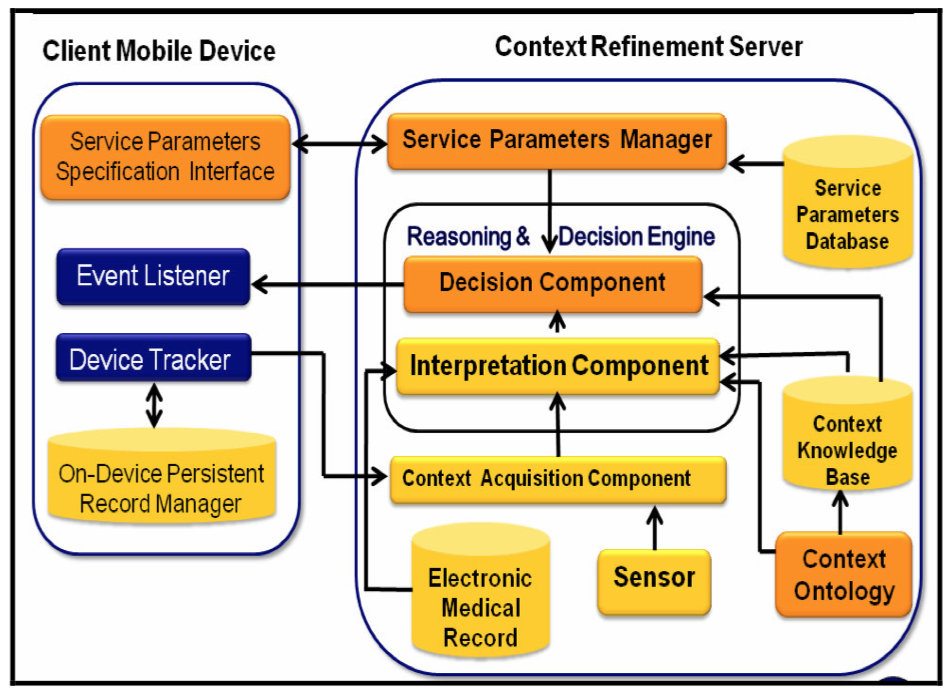 Context Refimement Framework
Context Refimement Framework
Context Information Refinement for Pervasive Medical Systems
Abstract
In pervasive medical systems with context-aware computing facility, the quality of decisions made by medical professionals is influenced by the quality of context information supplied by the context management sub-system. Central to context management is context information refinement aimed at deriving context information that can assist applications inmaking valuable decisions about what to deliver to users. In this thesis, we identified the shortcomings of existing works in relation to context information refinement in pervasive medical systems. The shortcomings are lack of adequate consideration for: quality parameters of context information, relevance of context information and particular requirements of the pervasive healthcare domain. In order to overcome these shortcomings, we proposed a context information refinement architecture that facilitates and coordinates the refinement procedure starting from acquisition of context information up until the refined context information is delivered to the target application (user) in a pervasive medical system by addressing the above- mentioned shortcomings. The architecture is composed of the client mobile device end and the context refinement server. The client mobile device end consists of components responsible for tracking the device context (E.g. location), listening to incoming events from the server, providing interface for specifying service constraints and local caching services. On the context refinement server side, the major components are the reasoning and decision engine that performs ontology-supported context reasoning, the service parameters manager that maintains up-to-date list of service constraints, the context ontology that models the concepts and relationships between concepts in the pervasive healthcare domain and the context acquisition component that collects and aggregates context data from potential context data sources like sensors. To demonstrate the validity of the proposed architecture, we developed a prototype that implements the core components of the proposed architecture. The implementation has been evaluated with a real-life pervasive healthcare scenario and encouraging initial results have been obtained as an indication to the usability of the proposed architecture in a real- life setting.